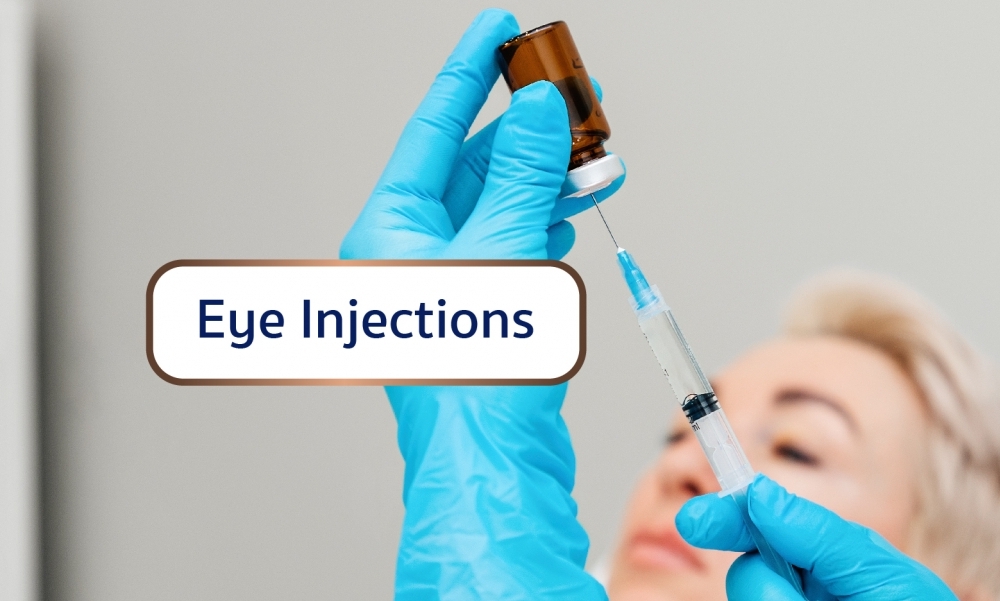Eye Injections
Did you know that sticking a needle in your eye could save your sight?
More specifically, having an ophthalmologist inject medication directly into your eyeball (called an intravitreal injection) to treat certain conditions can preserve your vision.
Today, ophthalmologists and patients are delighted with results of certain retinal treatments using intravitreal injections. Diabetic eye disease, macular degeneration and retinal vein occlusion are some sight-stealing conditions that respond well to medication injections.
> What To Expect During an Eye Injection
So what should you expect if your ophthalmologist recommends an intravitreal injection?
First, you will be given an anesthetic to numb the surface of your eyeball so you don’t feel pain. The anesthetic may be in eye drop or eye gel form. Sometimes you might be given a small injection of numbing medicine. Your eye and eyelids will be cleaned with an antiseptic solution to help prevent infection from bacteria near the eye.
Your ophthalmologist will likely place a device called an eyelid speculum on your eye to hold the lids open. Then you will be asked to look in a certain direction so that your ophthalmologist can inject the medicine into a specific part of the eye.
The needle used for the injection is very thin. You will probably feel only pressure, with little or no pain, as the medicine is injected through the white part of your eye.
After the injection, your ophthalmologist will remove the eyelid speculum and clean your eye to remove the antiseptic. They will also check the eye to make sure there are no problems or complications. The typical injection process usually takes about 10 to 15 minutes overall.
For a few hours, you may have some eye irritation. You could also have a spot of blood on the eye (called a subconjunctival hemorrhage) where the injection was given. This usually clears up in about a week.
Fortunately, complications after intravitreal injections are rare. But you should call your ophthalmologist if you have any of the following signs or symptoms:
- You have pain or discomfort in your eye;
- You notice decreased vision;
- You see more floaters in your vision;
- You are especially sensitive to light.
Information from American Academy of Ophthalmology
 02-056-3333
02-056-3333





